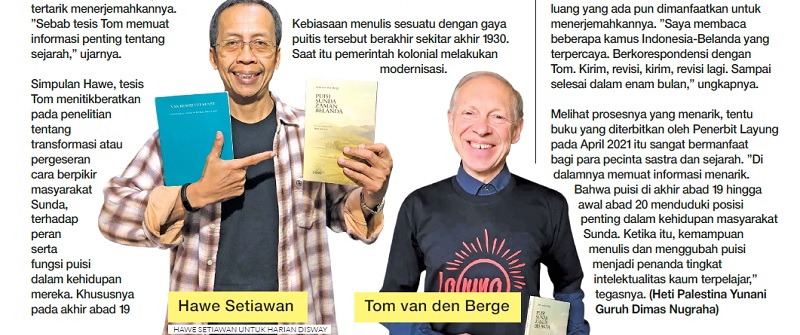
30 Jul Sundanese poetry in colonial times
Covid has brought misery and suffering, the lockdowns have caused anger and frustration. Once in a while, though, the pandemic and the restrictive measures have had advantageous effects. For example, Hawé Setiawan, a friend of KITLV researcher Tom van den Berge, who is a lecturer at the Fakultas Ilmu Seni dan Sastra (Faculty of Arts), Universitas Pasundan in Bandung, West Java, had the opportunity to complete his translation of Tom’s PhD thesis into Indonesian. And so, in April this year Van Kennis tot Kunst: Soendanese Poëzie in de Koloniale Tijd was published under the title of Puisi Sunda di Zaman Kolonial (Sundanese Poetry in Colonial Times).
In this interview in the Surabaya-based Harian Disway Hawé puts Puisi Sunda di Zaman Kolonial in a nutshell. Poetry played an important role in late nineteenth-century and early twentieth-century West Java. Poetry – not prose – was a means to knowledge transfer. A manual on rice cultivation, a report on a flood or an account of the celebration of the Queen’s Birthday were put and published in verse. In the 1930s all this had come to an end. Poetry had gradually become a medium of art and had lost its function of knowledge transfer. The state-owned publisher Balai Poestaka (Bureau of Literature) was essential in this process. It required the use of formal Sundanese in prose.
Hawé and Tom kept a lively correspondence on the Indonesian translation. Hawé finished ‘the job’ in only six months, which is amazing! Another amazing job was done by Atép Kurnia, the publisher who runs Layung. Hawé and Atép made this book into a must read for all those who are interested in Indonesian history and literature. By the way, Layung’s logo is printed on the T-shirt Tom’s wearing.




No Comments